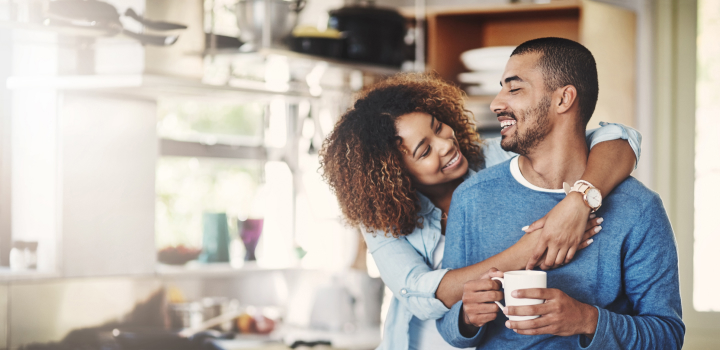Relationships in a time of COVID 19

Healthy relationships thrive when people have their own personal space, me time, routines and even eating habits. While we go through this unusual experience, the only option is to adapt and adopt methods to manage relationships.
For all of us, staying at home and indoors for protracted periods is a new experience. Dr Seranne Motilal, a clinical expert on the Vitality Wellness team who focusses on mental wellbeing, says: “All our relationships may be taking physical or emotional strain at the moment. For example, we may be spending more time than we are used to with some people and far less with others.”
“Feeling annoyed or irritated can be normal in relationships. However, these emotions and associated relationship difficulties may be further compounded by the new stressors and challenges we are facing with COVID 19,” she adds.
Dr Motilal suggests a measured approach to handling the change, and recommends adapting your approach if it doesn’t work.
“This is a new environment and, as with any new change, we all are going through a period of adaptation. It will take time to get right and to find what works for you and your family. Try to remain patient and be aware that the process of getting to a ‘new normal’ will require constant communication and many changes along the way,” she says.
The importance of self reflection
“We may be feeling an array of normal and expected emotions currently such as sadness, frustration and anxiety. Being aware of and reflecting on these feelings can help us to pinpoint what is causing our distress.”
“Self reflection can help us to understand, regulate and communicate our emotions better too. If we know what we are feeling and why, it’s easier to share, discuss and connect these dynamics with our partners,” she says.
Name those emotions
“As human beings we share emotional space and we often impart or project our feelings onto others. This can cause distress as there may be situations in which we are unaware of whose emotions belong to whom. For example, although we may be feeling angry or irritated, we project these feelings onto our partner and presume that they are irritable or angry. This could lead to miscommunication and getting the wrong idea of what you need and what your partner needs,” she says.
“COVID 19 may be causing us to feel generalised anxiety and stress. This may make it harder to understand and distinguish between our own personal emotions and those of others. However, as we occupy shared spaces and experience shared feelings, it is important to reflect, and try to empathise with the people in our lives,” says Dr Motilal.
“By reflecting on and trying to understand our partner’s thoughts, feelings and stressors, we can better understand our relationships and partners in a more empathetic and compassionate way.”
Still, conflict is inevitable
“Increased conflict can be expected. Remain aware and mindful of this,” she says.
Dr Motilal says we must acknowledge and deal with conflict, rather than avoiding it. But prioritises urgent needs first and carefully choose your time to discuss issues.
>“Then, speak openly but carefully. Communicate the issue. Although we may expect our partners to intuitively know our thoughts and understand our feelings, nobody is a mind reader. We should rather share our thoughts and experiences and explain why we are feeling what we are feeling. This requires us to really listen to ourselves, as well as to the other person,” she says.
Find spaces of agreement. “Even if this is to agree that there is a disagreement, finding shared ground is crucial,” says Dr Motilal. Revisit the issue after taking time to reflect on both points of view.
Try this exercise, in a moment of quiet:
- Find the good. Intentionally look for the positives and strengths in your partner or family member. Try to not only focus on the negative and try to connect to the love and joy you share.
- Remind yourself of the traits you value and appreciate in your partner.
- Engage. Purposefully involve each other in shared interests and activities.
But remember to look after yourself first
“Don’t doubt how important your own care is in this time. Be compassionate with yourself first and ensure that you and your loved ones stay safe and protected. This includes exercising, eating healthily, engaging in mental health practices, like mindfulness and meditation, and seeking further professional help, if needed. This is especially relevant for those in situations that are harmful,” she adds.
“Although this an extremely difficult time, there may well be opportunities for growth and even strengthening relationships. We may now have more time, which can be stressful but can also enable us to work on communication in our relationships and to further connect with partners and children,” Dr Motilal says.
Visit the Vitality at Home mental wellbeing channel for tips and guides for staying mindful.

Introducing Vitality at Home
Vitality brings you Vitality at Home so you can continue to achieve your fitness and nutrition goals.
We're pulling out all the stops to help you stay healthy and rewarded during this stay at home period.